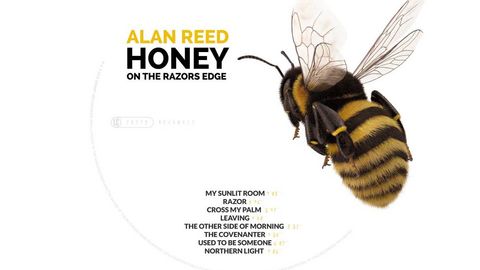Ex-Pallas man Alan Reed has a lot on his mind. Like many of the prog practitioners featured in these pages he has a busy day job, a family – and the crushing, soul-sapping weight of reality lying heavy on his shoulders. The fact that this album exists at all is testament to prog’s ability to flourish in the face of that daily grind. This music makes its world in hidden places, planting seeds in the cracks, so while Reed – in his capacity as a news producer for the BBC – has had his hands full documenting the current hell-in-a-handcart geopolitical scenario, his stolen moments have been spent diligently cultivating this second full-length.
Prog does not say this to patronise Reed, though – this is not the record of a hobbyist and 30-plus years in prog-dom count for a lot. First, that little black book is rather bulging: here past co-conspirators, in ex-Pendragon man Scott Higham and Pallas’ Mike Stobbie take on drum and key duties, respectively, while a certain Mr Hackett hammers out some fine harmonica. More importantly, there’s a transformative and vibrant attention to detail that refuses to allow the listener to stray too far mentally while in its presence. Those familiar with Reed’s debut solo album First In A Field Of One will recognise a similar strain of the soaring, breeze-whipped Celtic soul imbued in this material, but this time Stobbie has a freer rein and his keyboard work, alongside a more generous amplification allocation, have led to a more mechanical collection, with all the good and bad that entails.
Opener My Sunlit Room’s audacious 16-bit-style synth intro sounds like it was culled from a particularly ambitious early 90s Sega platformer, but is given context by Reed’s Gabriel-esque quiver. Elsewhere, Razor’s eastern percussion sounds blend into heavy electric riffs and Hackett’s devilishly beefy harmonica solo tips a tonal cap to When The Levee Breaks. Honey…’s centrepiece, however, is The Other Side Of Morning, which showcases some sprightly 12-string and a potent gear shift into arpeggio’d lead guitar, courtesy of Jeff Green. The nine-minute epic meanders a little needlessly in the middle, but Reed’s emotive, imploring refrain to ‘stay… at least ’til the morning’ – as if the world can wait out its darker hours – bathes the final moments in catharsis.
Throughout Honey…, Reed’s ideas are executed with a clarity and confidence that at times enthrals, although - as ever in modern prog – sometimes in a manner that’s just a little too neat to feel human. Nonetheless, Honey… draws a bold line under Reed’s Pallas work, referencing that history without sacrificing the bracing, airy quality of his recent solo accomplishments. Sweet.

